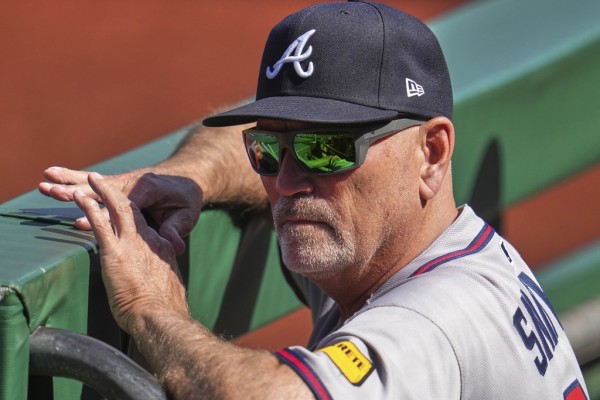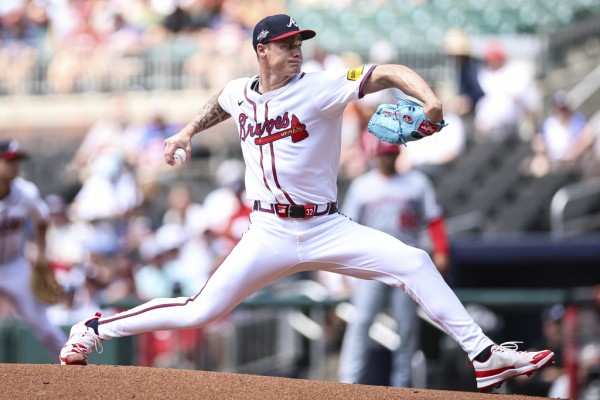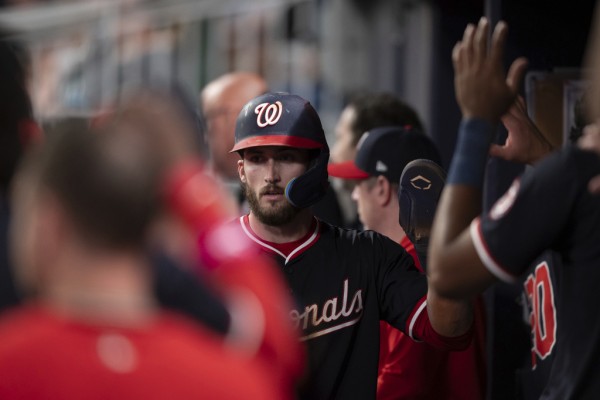Mashed-up corn is heated to produce vapor, which condenses into grain alcohol.
Sound familiar, NASCAR old-timers? It's the recipe for moonshine, the largely forgotten foundation of a sport that has moved from backwoods to big time.
But moonshine is going mainstream, too. You know it as ethanol - a gasoline alternative that isn't much different from the hooch (shh!) Junior Johnson used to hide in his trunk.
And given the current political climate, it might be smart for NASCAR to fire up the still.
The Indy Racing League is leading the way on alternative fuels, beginning a two-year transition to ethanol.
NASCAR? Those dinosaurs are still burning dinosaurs.
Last year, General Motors officials privately asked NASCAR to consider switching to ethanol. Sen. Tom Harkin, D-Iowa, made a similar public plea to NASCAR CEO Brian France.
Their appeals didn't gain much traction. But that doesn't mean it was a bad idea.
"It fits the racing mode, and we would definitely be in favor of any move that moves us away from dependence on foreign oil," said Brent Dewar, vice president of sales, service and parts for GM.
Dewar, who became an ethanol evangelist after overseeing GM's successful sale of ethanol-ready cars in Brazil, said the automaker plans another round of lobbying NASCAR to switch.
And why not? People are spending $3 a gallon to fill up, and a lot of people think oil is beginning to dry up. Even the alpha NASCAR dad, former Texas oilman George W. Bush, said America is "addicted" to oil and needs alternatives.
NASCAR could help get people fired up about ethanol - and help itself in the process.
Two years ago, the sport polished its public image by weaning itself from big tobacco sponsorship money. Given the public backlash against oil companies' record profits, now would be a savvy time for NASCAR to break its other bad habit.
It's already happening at Indy, where later this month the entire Indy 500 starting field will be fueled by a mixture of ethanol and carbon-based methanol for the first time. Next year, Indy cars will run on 100 percent ethanol.
IRL vice president of business development John Lewis said ethanol fits in with the league's image as a technology leader.
"We believe ethanol is the right decision, a responsible decision," Lewis said.
You might consider ethanol a novelty, but star drivers Helio Castroneves and Tony Kanaan probably don't. They're from Brazil, where the majority of passenger cars run on ethanol.
Ethanol has advantages, but isn't a magic potion. It has higher octane, increasing power, but doesn't get quite as many miles per gallon. Advanced refining techniques are quieting concerns that ethanol takes more energy to produce than it delivers.
And you'll have to buy a new car if you want to burn a richer mixture of ethanol than the 10 percent blended with gasoline now commonly available. American car companies already build "flex fuel" vehicles that can run on both gasoline and "E85" - an 85 percent ethanol bled sold at a handful of gas stations nationwide - and they'd like to sell more of them.
Hmm ... if only there was a group of celebrities who knew how to influence car-buying decisions. Sound like anybody you know?
Brazil does it? Big deal.
Jeff Gordon does it? Sign me up!
GM already uses NASCAR's Craftsman Trucks series to advertise its E85-capable trucks, but actually using ethanol in races would send a stronger message.
"It fits with what's good for America," Dewar said. "The racing fans are really mainstream, heartland folks."
It would be a big leap for NASCAR, which only this year established a two-year timeline for switching from leaded to unleaded gasoline.
NASCAR spokesman Ramsey Poston said officials are focusing on the transition to unleaded, which might begin with tests in the trucks and Busch Series this year, but would consider ethanol or other alternative fuels down the road.
"We'd certainly look at it," Poston said.
Another potential roadblock: NASCAR has a sponsorship deal with an oil company, Sunoco. A Sunoco spokesperson referred a call Monday to NASCAR officials.
And while NASCAR teams often complain that rules changes cost them millions of dollars, NASCAR already is working with them on developing an "engine of the future" - so why not make those new engines truly futuristic?
And, by the way, it only costs automakers about $200 in parts to make a new passenger car ethanol-capable.
Beyond that, there's only one reason for NASCAR to be wary of ethanol: Keeping folks in the infield from trying to chug the leftovers.
Friday
May 16th, 2025
12:41AM
















